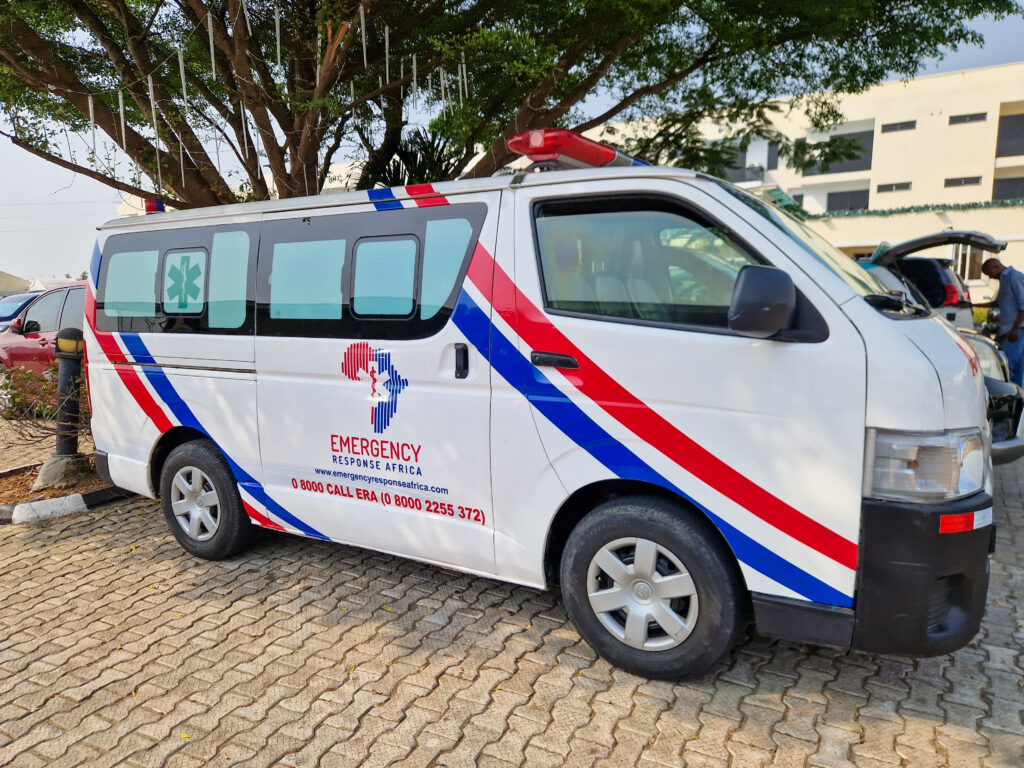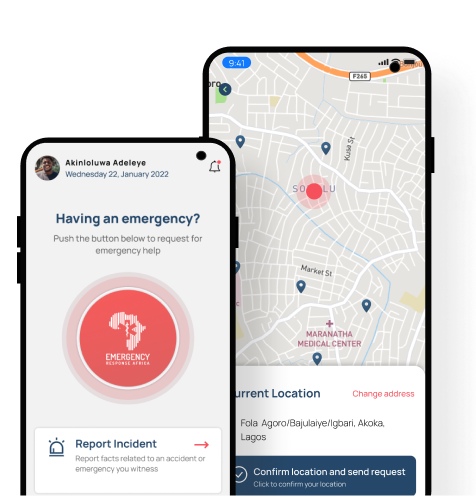Lagos is home to over 20 million people and some of the busiest roads in Africa. Life in this fast-paced city comes with daily uncertainty, which makes medical emergencies even harder to manage.
Whether it’s a car crash in Ikeja, a collapse at home in Surulere, or a maternity emergency in Lekki, what matters most is not just when help arrives, but who arrives and how prepared they are.
Some ambulances come too late. Others aren’t equipped for critical care. In a city where traffic delays are normal, choosing the right ambulance service in Lagos isn’t just a precaution—it’s a lifesaver.
This guide will help you find an ambulance provider that’s fast, reliable, and truly ready when it matters most. If you live or work in Lagos, here are 10 key things to look for before choosing an ambulance service.
1. Check for 24/7 Availability and Rapid Response
When choosing an ambulance service in Lagos, one of the most important things to check is how quickly they can get to you. A reliable service should have a clear average response time, ideally between 10 to 20 minutes, depending on your location.
Ask if they have ambulances stationed across different parts of Lagos, especially around high-demand areas like Ikeja, Lekki, Surulere, and Ajah. The more distributed their coverage, the faster they can reach you when it matters most.
Also, check if they have a 24/7 call center or a good dispatch system that helps them send the nearest available ambulance. With the unpredictable traffic and dense neighborhoods in Lagos, technology and round-the-clock coordination are essential.
2. Verify Medical Equipment and Ambulance Type
Not all ambulances are built the same and the type you choose can make a big difference during an emergency. In Lagos, some providers offer only basic patient transport, while others are equipped for full-scale medical emergencies.
Before booking, ask whether the ambulance is classified as Basic Life Support (BLS), Advanced Life Support (ALS), or ICU-level. A BLS ambulance typically has oxygen, a stretcher, and first aid supplies, suitable for non-critical patients.
For serious cases like trauma, cardiac arrest, or neonatal emergencies, an ALS or ICU ambulance is essential. These come with defibrillators, ventilators, infusion pumps, and other life-saving tools.
Make sure to also ask if the equipment is functional and well-maintained. A well-equipped ambulance staffed with the right gear can provide vital pre-hospital care and greatly improve the chances of survival.
3. Confirm the Presence of Trained Medical Personnel
An ambulance is only as effective as the people inside it. When choosing a service in Lagos, confirm that the ambulance is staffed with trained medical professionals, not just a driver and an assistant.
At the minimum, there should be a certified paramedic or emergency medical technician (EMT) onboard. For more critical cases, an Advanced Life Support (ALS) ambulance should include a nurse or doctor with emergency care experience. These professionals are trained to stabilize patients, administer medication, and handle complications before reaching the hospital.
So, don’t hesitate to ask about the qualifications of the crew. Emergency Response Africa ensures that every ambulance in its network is staffed with certified professionals who can begin critical care from the moment they arrive.
4. Compare Cost and Payment Flexibility
Ambulance services in Lagos vary widely in cost, and in an emergency, unclear pricing can add unnecessary stress. Before choosing a provider, ask how their charges work, is it a flat rate, charged per kilometer, or based on the level of care provided? Also check for additional fees, such as night-time surcharges, tolls, or standby charges.
Some services require full payment upfront, while others may offer more flexible options like card payments, online transfers, or subscriptions for registered clients. If you’re covered by a health insurance plan, confirm whether the ambulance provider accepts your HMO or insurance scheme.
The goal is to avoid delays caused by confusion over payment. Always go for a provider that is clear, fair, and upfront about their costs.
5. Consider Non-Emergency and Inter-Hospital Support
Ambulance services aren’t only for life-or-death emergencies. Many people in Lagos also need medical transport for planned hospital visits, inter-facility transfers, or routine check-ups, especially the elderly, patients with chronic illnesses, or those recovering from surgery. These are just as important and should be handled with care and professionalism.
A good ambulance service should offer non-emergency transport that’s safe, timely, and properly supervised by trained staff. Ask also if they allow family members to accompany the patient.
If you’re helping an elderly relative or managing care for someone with a chronic condition, choosing a provider that handles both emergency and non-emergency transport will save you stress down the line.
6. Ask About Real-Time Tracking and Communication
When a loved one is in an ambulance, not knowing what’s happening can be terrifying. That’s why a good ambulance service should offer real-time tracking and clear communication throughout the trip.
Ask the provider if they have a GPS-enabled system that allows dispatchers, hospitals, or even family members to follow the ambulance’s location in real-time. This helps reduce delays, avoid confusion at drop-off points, and ensures the hospital is prepared to receive the patient.
Also, check if they provide updates via SMS, phone calls, or app notifications during emergencies. Communication is essential, not a bonus.
Providers like Emergency Response Africa use real-time tracking to keep patients, families, and hospitals informed every step of the way—making the emergency response more transparent, coordinated, and reassuring.
7. Evaluate Availability for Events, Offices, and Communities
Emergencies can happen anywhere, not just at home or on the road. Offices, schools, churches, weddings, and community events in Lagos are also vulnerable to medical emergencies.
That’s why it’s important to check if the ambulance service you’re considering offers standby coverage for public and private gatherings. A reliable provider should be able to deploy ambulances and first responders to events, company sites, estates, or religious venues upon request.
This kind of availability shows that the service is well-resourced and proactive. It also adds an extra layer of safety for employees, guests, or residents, giving everyone peace of mind.
Some services provide event medical planning, on-site support, and quick-response teams for scheduled functions. Whether you’re hosting a school inter-house sports day or managing a residential estate, having an ambulance on standby can make all the difference.
8. Check If They Are Registered and Regulated
Before you trust any ambulance service in Lagos, confirm they’re properly licensed. A legitimate provider should be registered with health authorities like the Lagos State Ministry of Health or the National Emergency Management Agency (NEMA).
Ask if their vehicles have official markings, valid registration numbers, and certified medical equipment. Also, confirm that their staff carry valid IDs and are recognized by professional medical boards.
Many fake or unlicensed providers operate without oversight, putting lives at risk. They may use unmarked vans, outdated equipment, or unqualified staff and charge the same price as real providers.
Don’t take chances in an emergency. Always request proof of registration or check their affiliations with recognized emergency networks in Nigeria. A regulated service is more likely to follow safety standards, provide accountability, and deliver professional care from start to finish.
9. Look for Partnerships with Hospitals or Emergency Networks
A good ambulance service doesn’t operate in isolation. Strong ties with hospitals, clinics, and wider emergency networks mean faster admission, better coordination, and smoother transitions during emergencies.
Before choosing a provider, ask if they have existing partnerships with key hospitals in Lagos. This helps ensure that once the ambulance arrives, the hospital is already expecting the patient, saving valuable time.
Also, look out for services that are part of larger emergency care systems. For example, Emergency Response Africa works with a network of vetted, emergency-ready hospitals across Lagos. Their team shares critical patient information while en route, so receiving hospitals can prepare in advance—saving precious minutes during life-threatening situations..
10. Look Into Reputation and Reviews
Word spreads fast so use it to your advantage. Before choosing an ambulance service, take a moment to research what others are saying. Look up the provider’s name online, check Google reviews, and browse their social media pages.
Pay attention to comments about speed, professionalism, and how well the team handled emergencies. Were the medics calm and competent? Did they arrive on time? Was the equipment in good condition? These real-life stories can give you insight you won’t find on their website.
Also, ask friends, hospitals, or health centers for recommendations. If a provider has a strong track record and is trusted by the community, that’s a good sign.
In emergency care, reputation matters. A provider known for delay or carelessness can put lives at risk. Go with a name that others trust and don’t ignore red flags.
Conclusion
Emergencies rarely give notice, and in a fast-moving city like Lagos, being unprepared can turn a manageable situation into a life-threatening crisis. Choosing the right ambulance service isn’t just a health decision, it’s a safety plan.
Whether you’re a parent, employer, caregiver, or community leader, now is the time to make that decision, not in the heat of an emergency. Look for providers who are trained, equipped, and truly ready to respond when it matters most.
Emergency Response Africa offers one of the most reliable and coordinated ambulance services in Lagos. With 24/7 availability, real-time tracking, and a network of hospital-ready responders, ERA ensures that help doesn’t just come, it comes prepared.
Call 08000 2255 372 (toll-free) or email contact@emergencyresponseafrica.com to register your home, school, office, or event today.



